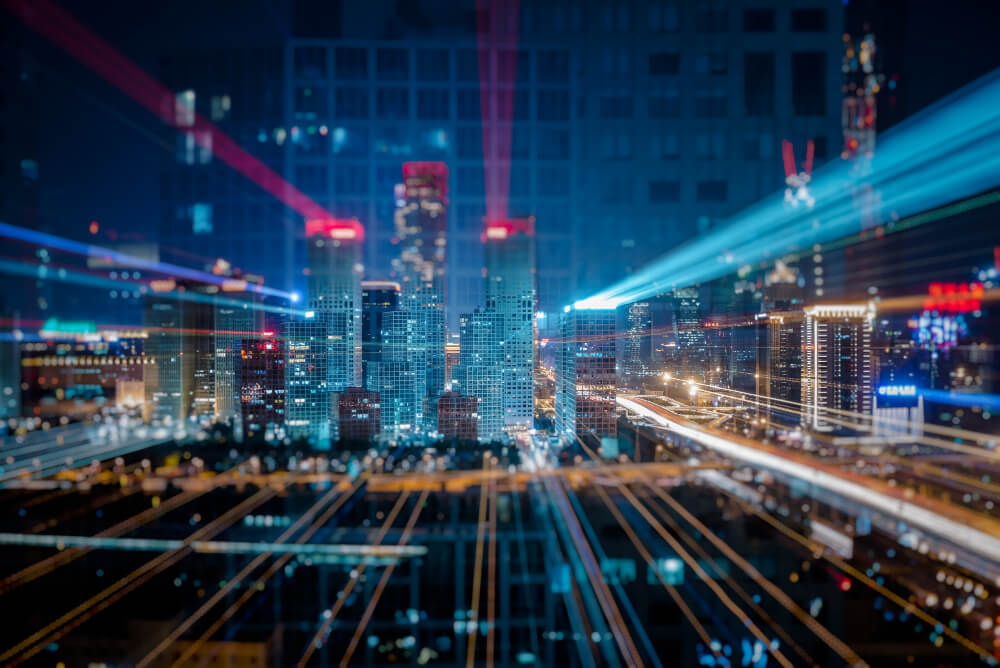Smart cities represent a convergence of technology, urban planning, and community engagement. At the heart of this convergence is Artificial Intelligence (AI). AI acts as the brainpower behind smart city infrastructures, offering solutions that not only simplify urban challenges but also elevate the quality of life for residents. This article delves into the profound impacts of AI on the development of smart cities.

1. Intelligent Traffic Management
Traffic congestion is a chronic issue in urban areas. AI-driven traffic management systems process data from cameras, sensors, and satellites in real-time. They analyze traffic flow, detect bottlenecks, and predict congestion points. By dynamically altering traffic light sequences or sending alerts to drivers about alternative routes, AI alleviates traffic woes, ensuring smoother commutes and reduced carbon emissions.
2. Energy Optimization
AI plays a pivotal role in energy conservation and optimization. By analyzing data from smart grids and connected devices, AI predicts energy consumption patterns and adjusts distribution accordingly. For instance, during periods of low demand, AI can reroute energy to storage units. Additionally, in buildings equipped with smart meters, AI algorithms optimize heating, cooling, and lighting, resulting in significant energy savings.
3. Enhanced Public Safety
Safety is paramount in urban areas. AI-powered surveillance systems can detect suspicious activities, unattended objects, or crowd anomalies in real-time, enabling quicker responses from security personnel. Moreover, predictive policing tools analyze crime data to forecast potential hotspots, enabling law enforcement to preemptively deploy resources.
4. Sustainable Urban Planning
Urban planners can leverage AI to simulate and predict how different infrastructural changes will impact the cityscape. By feeding historical and real-time data into machine learning models, planners can visualize the potential effects of a new park, housing complex, or transportation hub, ensuring more sustainable and community-friendly developments.
5. Waste Management and Environmental Health
Smart bins equipped with sensors can notify collection trucks when they are full, optimizing collection routes and frequency. Additionally, AI can analyze environmental data to monitor air quality, water purity, and noise pollution levels, ensuring timely interventions when standards are breached.
6. Enhanced Citizen Engagement
AI chatbots and virtual assistants can handle municipal queries, schedule appointments, or even facilitate processes like permit applications. This not only makes administrative processes more efficient but also fosters a sense of inclusivity and engagement among citizens.
7. Predictive Maintenance of Infrastructure
AI can predict when city infrastructures, such as bridges, roads, and tunnels, are due for maintenance by analyzing data from sensors and historical records. This proactive approach can prevent catastrophic failures, ensuring the longevity of city assets and the safety of residents.
The development of smart cities is a testament to human ingenuity and the potential of technology. AI acts as the linchpin, converting data into actionable insights, optimizing resources, and ensuring the well-being of citizens. As urban centers continue to grow, the symbiotic relationship between AI and city planning will become even more crucial, paving the way for cities that are not just smart but also sustainable, resilient, and humane.
Supplementary Content
Challenges and Ethical Considerations
While AI brings numerous advantages to smart city development, it's essential to recognize the challenges and ethical implications.
1. Data Privacy Concerns
The bedrock of AI-driven solutions is data. However, the collection and analysis of this data raise concerns about citizen privacy. It's vital for municipalities to implement robust data protection measures, ensuring that personal information remains confidential and secure.
2. Algorithmic Bias
Machine learning models are only as unbiased as the data they're trained on. If historical city data reflects societal biases, AI solutions might perpetuate these biases, leading to skewed decision-making.
3. Dependence on Technology
Over-reliance on AI systems can lead to complacency. If these systems were to malfunction, it might paralyze crucial city services. Hence, a balanced approach that blends technological solutions with human oversight is vital.
4. Economic Implications
While AI can streamline operations, there's a potential for job displacement in sectors like administrative services or waste management. Cities need to be proactive in providing retraining opportunities for affected workers.
5. Infrastructure Costs
Implementing AI solutions requires significant investment in infrastructure and technology. Balancing these costs with the benefits, especially in cities with limited budgets, can be a challenging endeavor.